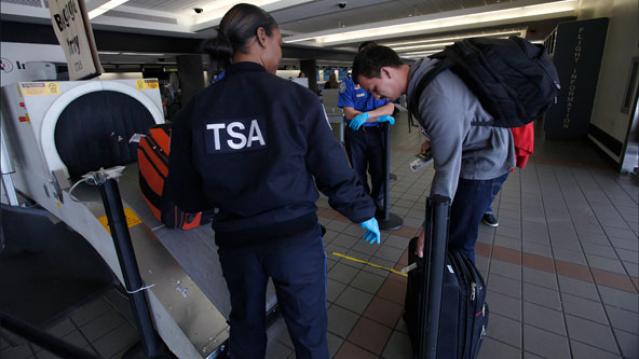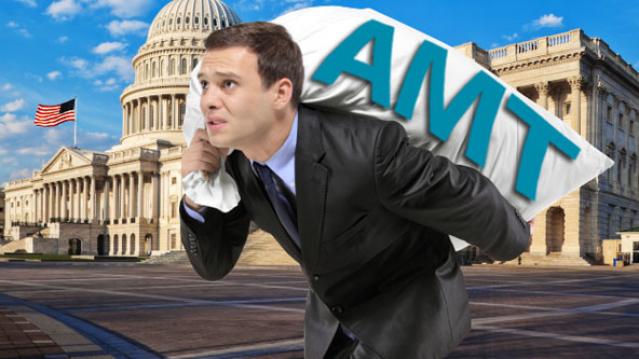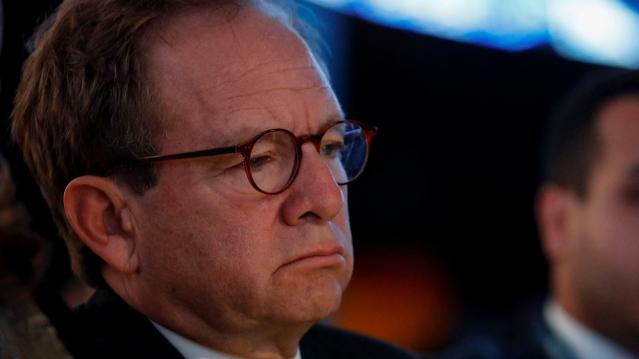How Safe Is that Flight? Auditors Question Airport Security

A government spat between Congress and the Transportation Safety Administration yesterday raised a question: Is the TSA trying to stonewall a congressional committee looking into reports suggesting the agency may be failing in its $7 billion-a-year mission to safeguard airports and air travel from terrorist threats?
At the start of Wednesday’s TSA: Are Airports Safe? hearing, House Oversight Committee Chairman Jason Chaffetz (R-UT ) immediately pointed out a glaring absence from the witness panel—the TSA.
Related: Poor Maintenance Could Make that Airport Scanner a Dud
Chaffetz said the committee had invited TSA acting administrator Melvin Carraway, but the agency offered a lower-level official in his place.
“The Department of Homeland Security objected to [Carraway’s] presence on the panel because they felt it was demeaning to have the acting director sit on the same panel as a private sector witness,” he said, referring to Raffi Fron, president of New Age Security Solutions, a company that provides security systems such as video surveillance.
The hearing was prompted by two separate but equally scathing watchdog reports that question the TSA’s ability to effectively screen passengers.
“Our audits have repeatedly found that human error— often a simple failure to follow protocol—poses significant vulnerabilities,” DHS’s IG John Roth said—adding that despite offering hundreds of recommendations the TSA has failed to assure that its mission is succeeding.
Related: Report Says TSA Wasted $1 Billion on Screening Program
DHS stood by its decision not to send its acting administrator. An agency official told The Fiscal Times that the department only participates in congressional hearing panels with other government agencies—not with private-sector witnesses in order to avoid conflicts of interest.
A spokesperson for the committee said that “witness invitations are not transferable” and that the “DHS does not dictate how we run our hearings.”
This isn’t the only roadblock the Oversight Committee has run into with the TSA. During the hearing, Chairman Chaffetz showed off a heavily redacted document he had requested from the agency—saying even members of Congress had “exceptional” difficulties getting information from them.
The committee spokesperson said House Oversight is currently looking into other ways the TSA has frustrated congressional inquiries—and what kinds of action can be taken.
Who Will Pay the AMT in 2018?

The GOP tax cuts expanded an exemption for the Alternative Minimum Tax (AMT) and changed tax breaks that often triggered the tax. As a result, The Wall Street Journal’s Laura Saunders reports, “This year’s AMT is a shadow of its former self. It is expected to raise about $5 billion for 2018, down from an estimated $39 billion under prior law, according to the Tax Policy Center.” The AMT will likely hit some 200,000 tax filers for 2018, down from roughly 5 million who would have had to pay if the tax cuts hadn’t been passed. And the number of people making $500,000 or less who owe the AMT will fall to about 120,000 this year from 4 million last year, a Tax Policy Center economist tells the Journal.
White House Targets Planned Parenthood Funding

The Trump administration is proposing a rule that would withhold federal Title X family-planning funding from any facility or program that provides abortions or refers patients to abortion clinics. The proposal is based on a Reagan-era rule that required physical and financial separation between taxpayer-funded operations and any abortion services. It would effectively cut off millions of dollars of funding to Planned Parenthood, which receives $50 million to $60 million in Title X funds and which services an estimated 41 percent of the 4 million patients who receive care through Title X, according to The Washington Post.
'Tax Reform Is Hard. Keeping Tax Reform Is Harder': Highlights from the House Tax Cuts Hearing

The House Ways and Means Committee held a three-hour hearing Wednesday on the effects of the Republican tax overhaul. We tuned in so you wouldn’t have to.
As you might have expected, the hearing was mostly an opportunity for Republicans and Democrats to exercise their messaging on the benefits or dangers of the new law, and for the experts testifying to disagree whether the gains from the law would outweigh the costs. But there was also some consensus that it’s still very early to try to gauge the effects of the law that was signed into effect by President Trump less than five months ago.
“I would emphasize that, despite all the high-quality economic research that’s been done, never before has the best economy on the planet moved from a worldwide system of taxation to a territorial system of taxation. There is no precedent,” said Douglas Holtz-Eakin, president of the American Action Forum and former director of the Congressional Budget Office. “And in that way we do not really know the magnitude and the pace at which a lot of these [effects] will occur.”
Some key quotes from the hearing:
Rep. Richard Neal (D-MA), ranking Democrat on the committee: “This was not tax reform. This was a tax cut for people at the top. The problem that Republicans hope Americans overlook is the law’s devastating impact on your health care. In search of revenue to pay for corporate cuts, the GOP upended the health care system, causing 13 million Americans to lose their coverage. For others, health insurance premiums will spike by at least 10 percent, which translates to about $2,000 a year of extra costs per year for a family of four. … These new health expenses will dwarf any tax cuts promised to American families. … The fiscal irresponsibility of their law is stunning. Over the next 10 years they add $2.3 trillion to the nation’s debt to finance tax cuts for people at the top – all borrowed money. … When the bill comes due, Republicans intend to cut funding for programs like Medicare, Medicaid and Social Security.”
David Farr, chairman and CEO of Emerson, and chairman of the National Association of Manufacturers: “We recently polled the NAM members, and the responses heard back from them on the tax reform are very significant and extremely positive: 86 percent report that they’ve already planned to increase investments, 77 percent report that they’ve already planned to increase hiring, 72 percent report that they’ve already planned to increase wages or benefits.”
Holtz-Eakin: “No, tax cuts don’t pay for themselves. If they did there would be no additional debt from the Tax Cuts and Jobs Act, and there is. The question is, is it worth it? Will the growth and the incentives that come from it be worth the additional federal debt. My judgment on that was yes. Reasonable people can disagree. … When we went into this exercise, there was $10 trillion in debt in the federal baseline, before the Tax Cuts and Jobs Act. There was a dangerous rise in the debt-to-GDP ratio. It was my belief, and continues to be my belief, that those problems would not be addressed in a stagnant, slow-growth economy. Those are enormously important problems, and we needed to get growth going so we can also take them on.”
“Quite frankly, it’s not going to be possible to hold onto this beneficial tax reform if you don’t get the spending side under control. Tax reform is hard. Keeping tax reform is harder, and the growth consequences of not fixing the debt outlook are entirely negative and will overwhelm what you’ve done so far.”
Steven Rattner: "We would probably all agree that increases in our national debt of these kinds of orders of magnitude have a number of deleterious effects. First, they push interest rates up. … That not only increases the cost of borrowing for the federal government, it increases the cost of borrowing for private corporations whose debt is priced off of government paper. Secondly, it creates additional pressure on spending inside the budget to the extent anyone is actually trying to control the deficit. … And thirdly, and in my view perhaps most importantly, it’s a terrible intergenerational transfer. We are simply leaving for our children additional trillions of dollars of debt that at some point are going to have to be dealt with, or there are going to have to be very, very substantial cuts in benefits, including programs like Social Security and Medicare, in order to reckon with that.”
Democrats Aren’t Running Away from Obamacare This Election

Politico’s Jennifer Haberkorn reports that, after four election cycles of ducking, dodging and tiptoeing around Obamacare, Democrats this time around have “a unified message blaming Republicans for ‘sabotaging’ the health care law, leading to a cascade of sky-high insurance premiums that will come just before the November midterm elections. They’re rolling out ads featuring people helped by the law. And Tuesday, they’re starting a campaign to amplify each state’s premium increases — and tie those to GOP decisions.” Democrats are also focusing on rising health care costs, projected Obamacare premium spikes and prescription drug prices, looking to hang those increases on the GOP.
A New Plan to Expand Health Care Coverage — and Contain Costs

Economists at the Urban Institute this week released a new health-care policy proposal. The plan would leave Medicare and employer-based health care coverage in place but add a new, Medicare-style “Healthy America” marketplace with public and private insurer options for everyone else. The Urban economists say their plan “is less ambitious than a single-payer system (i.e., Medicare for All), but it would get close to universal coverage with much lower increases in federal spending and less disruption for people currently enrolled in employer coverage or Medicare.”
As for the costs, the authors estimate it would be about $98 billion in the first year.
The Washington Post Editorial Board says the proposal serves as a reminder that “there are options that are neither as cruel as the GOP’s miserly repeal-and-replace nor as disruptive as the more sweeping left-wing proposals” for single-payer plans. “In other words, they are compassionate and realistic.” Read the Urban Institute’s plan here.
